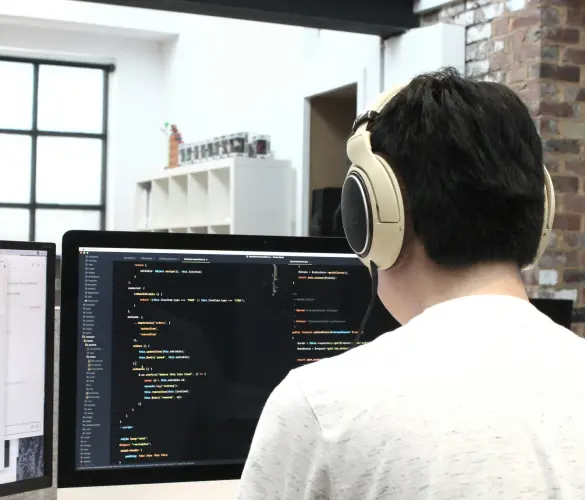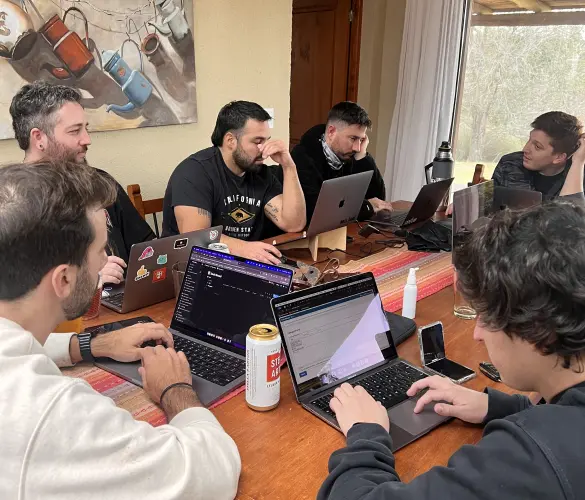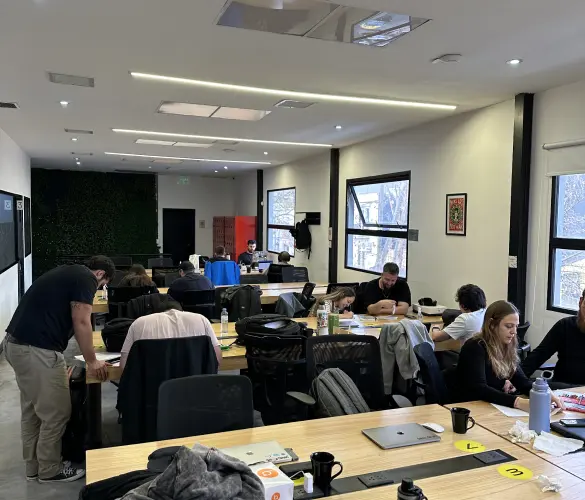- Blogs
- Industry Insights
- When Is AI Not Enough in WordPress Development?
Industry Insights / 4 min read
When Is AI Not Enough in WordPress Development?

Artificial intelligence has improved many aspects of software development. In my experience developing WordPress sites, tools like ChatGPT and Copilot have made it easier than ever to generate code, complete tasks quickly, and access documentation.
However, as much as AI helps streamline processes, there are moments when it simply isn’t enough. At the end of the day, our core development skills are what carry us through the complex challenges of development.
Let’s explore when AI can be very useful in your development projects and when it hits its limits, requiring you to rely on your own wits to see a project through.
When AI Is Useful in WordPress Development
AI can be very useful for generating code snippets (ChatGPT) and auto-completing code based on a large database of previous projects (Copilot).
They’re especially useful for repetitive tasks or those that require quick access to documentation. For example, I no longer need to memorize all the methods in PHP or WordPress because I can quickly generate what I need with a simple prompt.
These tools have saved me countless hours and given me more time to focus on the more challenging parts of the project where AI has a more limited potential. However, while AI is great for simple tasks, there are still situations when it comes up short.
The Limitations of AI in Complex WordPress Development Scenarios
When projects become more complex, especially in areas like data processing, cron jobs, or database connections, AI tools often hit a wall. I’ve been in several situations where AI-generated code simply doesn’t work, and I’ve had to solve the problem myself.
One of the biggest issues with AI is that it doesn’t fully understand the architecture of a specific project, which can lead to situations where it simply lacks the knowledge to produce usable code. In these moments, you need to rely on your knowledge.
For example, I was recently working on a task involving heavy data processing. While the AI tool provided some suggestions, they led me into an error loop that I had to fix manually.
It was a clear example of why relying solely on AI is risky. Without fundamental skills, I wouldn’t have been able to solve the problem.
Core Skills Are Still Essential for Problem-Solving
I’ve found that AI can be a great starting point, but it’s no substitute for core development skills.
When faced with complex challenges while developing custom WordPress solutions, I rely on critical thinking, a deep understanding of programming principles, and experience from past projects.
Additionally, remember that even with experience, we can’t know everything, and it’s important to seek help via Google or forums like StackOverflow and use debugging tools to solve problems.
Also, remember that even when AI provides a potential solution, you must always verify its accuracy and make adjustments. Never blindly trust AI-generated snippets.
Being aware of these tools’ limitations not only helps me use them more efficiently but also provides the gratification of knowing that I still have the skills to solve tough problems without depending entirely on AI.
How to Find the Right Balance Between AI and WordPress Development Expertise
AI is a helpful tool, but it works best when used alongside solid WordPress development skills. My approach has been to use AI for inspiration or assistance with simpler tasks but to always make sure I’m reviewing, testing, and refining the code it generates.
Overall, here are a few useful strategies I’ve learned when generating code with AI, which I hope you can use in your WordPress development projects and software development in general:
- AI is great for managing repetitive tasks that require problem-solving skills.
- AI is great for proposing approaches you may not have considered at first.
- AI can help spot bugs in your code.
- Since AI is trained on human code, it can return partially flawed or completely wrong solutions.
- Don’t rely on AI-generated code without testing, especially if the code involves functions or techniques you’re unfamiliar with.
- Always ensure the AI-generated code is secure before deploying it.
And above all, continually work on strengthening your core skills by reviewing past projects, reading documentation, and keeping up with industry trends.
AI is a powerful resource, but it’s the combination of AI and human knowledge that truly makes modern development projects happen.
That’s why you should try to maintain a balance: using AI as a tool while honing the fundamental skills necessary for tackling complex challenges that AI is not ready for.
If you found this post useful, read our blog and resources for more insights and guides!
Related Articles

Business / 12 min read
Business / 12 min read
How to Take on More WordPress Development Projects While Maintaining Quality
As a digital agency that provides WordPress services, your job is to take on as many projects as possible while maintaining the highest quality. This is easier said than done…
Read More
Business / 9 min read
Business / 9 min read
How to Choose a WordPress Development Agency to Scale Your Projects?
When your agency starts to scale, you may decide that a big part of your expansion will be providing WordPress services. If that's the case but you don't have an…
Read More
Business / 7 min read
Business / 7 min read
How to Optimize Time and Resources in WordPress Projects
WordPress agencies need to optimize and human resources use in order for their services (development, QA, design, etc.) to be profitable. They need to plan these projects very thoroughly to…
Read More
Business / 11 min read
Business / 11 min read
How WordPress Outsourcing Can Help Scale Your Agency
WordPress development outsourcing is becoming more frequent and affordable every day, helping global digital agencies of all sizes scale their services without the long-term investment of hiring an in-house team.…
Read More
Business / 8 min read
Business / 8 min read
What Is a White Label WordPress Development Agency?
A white label WordPress development agency is a company of WordPress developers, QA analysts, and project managers who provide outsourced services to digital agencies that lack a development team. Importantly,…
Read More